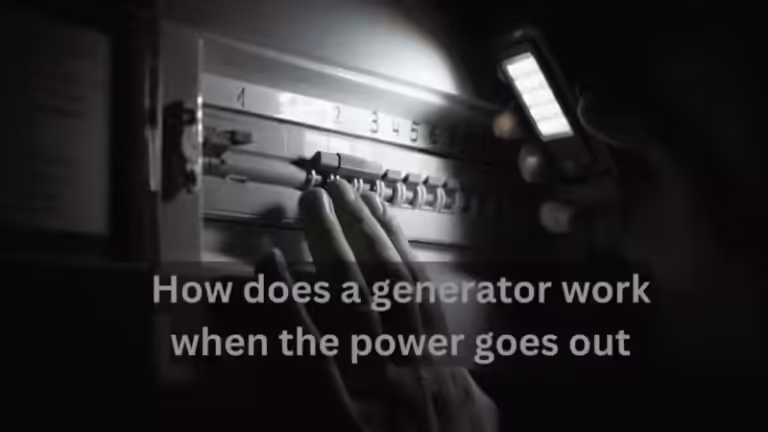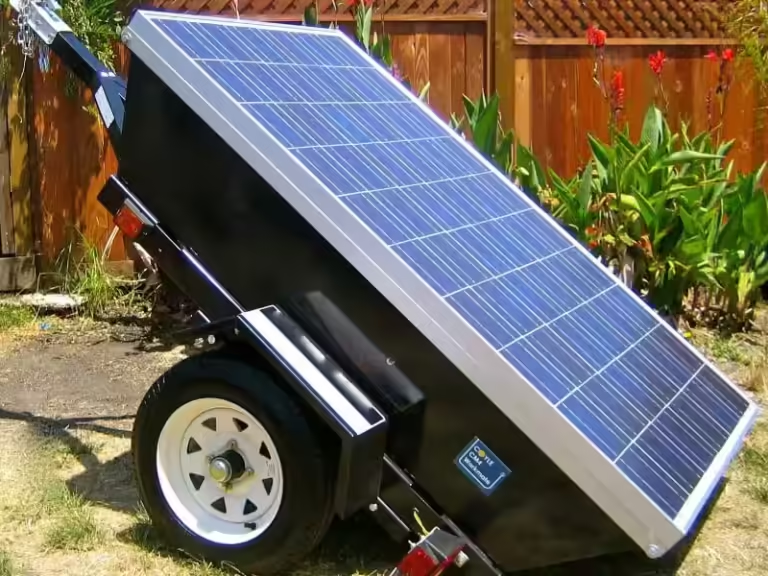Will a Generator Work If the Power Grid Goes Out?

In a world increasingly reliant on electricity, the prospect of a power grid failure can be unsettling. Whether it's a natural disaster, a cyberattack, or simply an aging infrastructure failing, the possibility of a prolonged power outage looms large. In such a scenario, many people turn to generators as a lifeline, hoping to maintain some semblance of normalcy. But a crucial question arises: will a generator work if the power grid goes out?
The simple answer is yes, a generator can provide power during a blackout. However, understanding the intricacies of generator operation and the potential dangers involved is vital. This article delves into the nuances of using generators during power outages, emphasizing the importance of safety and the potential risks associated with improper operation.
The Mechanics of a Generator
Generators are essentially self-contained power plants that convert mechanical energy into electrical energy. They typically run on gasoline, propane, or natural gas, and their primary function is to produce electricity when the main power grid is down. When you flip the switch on a generator, the engine starts running, turning a shaft connected to an alternator. This alternator generates electricity, which is then delivered to your home through a series of wires and outlets.
The key to understanding how a generator works during a power outage lies in its ability to operate independently of the grid. Unlike appliances that draw power from the grid, a generator generates its own power, allowing you to run essential devices like lights, refrigerators, and heating systems even when the power is out.
Backfeeding: A Critical Safety Concern
While generators can provide a vital source of power during outages, they also present a significant safety risk: backfeeding. Backfeeding occurs when electricity flows from a generator or other alternative power source into the main power grid, potentially creating a dangerous situation for both the homeowner and utility workers.
Imagine a scenario where a homeowner is using a generator to power their house during a prolonged power outage. The homeowner is concerned about the potential consequences of accidentally backfeeding the electrical grid if the main power supply is restored while the generator is still connected. This is a serious concern due to the following reasons:
The Danger of Backfeeding: A Potential Power Outage Scenario
The text describes a scenario where a homeowner is using a generator to power their house during a prolonged power outage. The homeowner is concerned about the potential consequences of accidentally backfeeding the electrical grid if the main power supply is restored while the generator is still connected.
Backfeeding: A Serious Hazard
Backfeeding can create a high-voltage situation, exposing individuals to a significant risk of electric shock. The sudden surge of electricity from the generator can damage appliances, electrical wiring, and even utility equipment. It can lead to overheating and potential fires in wiring, appliances, and electrical panels. Additionally, if utility workers are unaware of backfeeding, they could be seriously injured or killed while working on the power lines.
The scenario presented in the text highlights the critical importance of ensuring all incoming power to the electrical panel is disconnected before using a generator. This includes turning off the main breaker and any other switches that may connect the house to the grid.
Mitigating Backfeeding Risks
To mitigate the risk of backfeeding, the following precautions should be taken:
- Always disconnect the main power supply to the house before connecting a generator.
- Use a transfer switch: A transfer switch is a specialized device that safely connects a generator to the house's electrical system, preventing backfeeding. Transfer switches physically isolate the generator from the main power grid, ensuring that electricity flows only from the generator to the designated circuits in your home.
- Never connect a generator directly to the electrical panel without a transfer switch.
- Consult an electrician: Professional electricians can provide guidance on safe generator installation and operation.
It's important to emphasize that the scenario described in the text is a hypothetical one. The homeowner's curiosity highlights a common concern, but it's crucial to understand the potential dangers of backfeeding and take appropriate precautions to ensure the safety of yourself, your property, and utility workers.
Preparing for a Power Outage: Beyond the Generator
While generators can provide a critical lifeline during a power outage, it's essential to have a comprehensive preparedness plan that goes beyond just electricity. This includes having a stock of essential supplies, understanding your community's resources, and knowing how to stay safe in a variety of scenarios.
Essential Supplies for Power Outages
- Water: A minimum of one gallon per person per day for drinking, cooking, bathing, and cleaning.
- Food: Non-perishable items with a longer shelf life than just two days for freezer contents.
- Light: Candles, flashlights, and headlamps, remembering that EMPs can disable batteries.
- First-aid kit: For minor injuries and emergencies.
- Communication: A weather radio for updates, and consider a two-way radio for communication with neighbors.
- Cash: As financial systems may be disrupted.
- Tools: For repairs, such as a multi-tool, pliers, and duct tape.
Community Preparedness and Communication
Beyond individual preparedness, fostering community resilience is crucial. Engage with your neighbors, share information, and establish a communication network for emergency situations. This collaboration can enhance your collective ability to cope with a power outage and support each other in the aftermath.
A generator can be a valuable asset during a power outage, providing a vital source of electricity for essential appliances and devices. However, it's crucial to understand the potential dangers of backfeeding and to take appropriate precautions to ensure safety. By following safety guidelines, investing in a transfer switch, and having a comprehensive preparedness plan, you can maximize the benefits of a generator while minimizing the risks. Remember, a power outage is a challenging situation, but with proper preparation and a proactive approach, you can navigate it safely and effectively.
Frequently Asked Questions About Generators and Power Outages
Will my generator work if the power goes out?
Yes, a generator can provide power to your home during a power outage. However, it is important to follow safety precautions to prevent backfeeding and ensure proper operation.
How do I connect my generator to my home?
To avoid backfeeding, never connect a generator directly to your home's electrical panel. Instead, use a transfer switch, which safely connects the generator to your electrical system.
Is it safe to use a generator indoors?
No, generators produce carbon monoxide, a deadly gas. Always operate generators outdoors and away from windows and doors.
How long will my generator run?
The runtime of your generator depends on the size of the generator, the load you are powering, and the fuel capacity.
What should I do if my generator stops working?
If your generator stops working, check the fuel level, the circuit breakers, and the engine oil. If the problem persists, contact a qualified technician for assistance.








